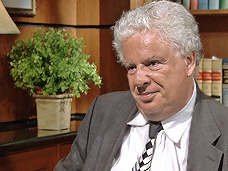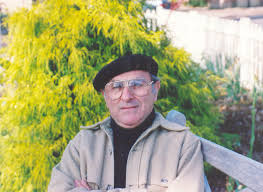
 Two
weeks ago, this Panel addressed the issue of the fugitive former US
intelligence analyst Edward Snowden, who has been charged by the US authorities
with a range of crimes, including the theft of government property and
disclosure of classified intelligence. We asked whether Russia
should risk another blow to its relations with America by even contemplating
offering safe haven to Snowden.
Two
weeks ago, this Panel addressed the issue of the fugitive former US
intelligence analyst Edward Snowden, who has been charged by the US authorities
with a range of crimes, including the theft of government property and
disclosure of classified intelligence. We asked whether Russia
should risk another blow to its relations with America by even contemplating
offering safe haven to Snowden.
At the time of writing this week’s Panel introduction, Snowden, having left Hong Kong on a flight to Moscow on Sunday, 23 June, remains in the transit area of Sheremetyevo airport outside the Russian capital city. Sweeping aside intense US pressure to apprehend and repatriate Snowden, President Vladimir Putin made clear that, in the absence of an extradition treaty between the US and Russia, he considers the fugitive to be a "free man” whom Moscow would not prevent from travelling to any country of his choice. At the same time, in what appeared an attempt to limit potential damage to bilateral relations, Putin indicated that Russia would prefer Snowden to move on to his final destination without much delay.
At first glance, the Snowden affair might well be dismissed as yet another diplomatic spat between the former Cold War rivals (with China involved for good measure this time round, owing to Snowden’s choice of Hong Kong as his initial safe haven). However, closer examination suggests that it is more significant than that – not least because it highlights the failure of the two countries to establish constructive relations, including in the critical area of public security.
The gathering of anti-terrorism intelligence – which Snowden is alleged to have compromised and which he may compromise further if he is not gagged – is vital for the public security of both countries, as the recent terrorist attacks in Boston demonstrated. Were relations between Russia and the US healthy, if not cordial, it is likely that the Russian authorities would not be overly fastidious in respecting the legally ambiguous status of an airport transit zone and would find a way of extraditing Snowden. However, it is difficult to see why Russia should be eager to cooperate in this way, given the long list of its weighty grievances against Washington.
First, Putin continues to be perceived by the US political class, officialdom and media as an autocrat whose legitimacy is, at best, questionable; for this and other reasons, he and his regime remain the target of withering criticism – if not covert destabilization – as seen most recently over the drive to regulate NGOs that receive funds from abroad. Second, the passage by the US Congress of the legally unsound and inherently arbitrary Magnitsky Act has hardly endeared Russia’s security agencies. Third, US media and politicians are prone to apply double standards as regards anti-terrorism activities, frequently implicitly or explicitly depicting Islamist terrorists in Russia as "freedom fighters”. And last but not least, Washington has largely dismissed Moscow’s concerns about its plans for the deployment of the ballistic missile defences close to Russia’s borders.
Against this background, US Secretary of State John Kerry’s appeals to Russians to cooperate simply as America’s "friends” and co-members of the US Security Council could be seen as disingenuous. However, it is doubtful that Moscow’s failure to cooperate would be in Russia’s own best interests. On future occasions, Russia might well require Washington to cooperate in similar circumstances; and if such is the case, its handling of the Snowden affair could prove decisive as to how Washington chooses to respond.
 The topic for the Discussion
Panel is provided by Vlad Sobell,
The topic for the Discussion
Panel is provided by Vlad Sobell,Editor, Expert Discussion Panel
Professor, New York University, Prague
Editor, Consensus East-West Europe
Expert Panel Contributions
 Martin Sieff
Martin Sieff
Chief Global Analyst, The Globalist
Snowden’s Sheremetyevo adventure has both positive and negative sides
 Anatoly Karlin
Anatoly Karlin
Da Russophile
No use crying over leaked milk, let alone threatening sanctions
 Dmitry
Mikheyev
Dmitry
Mikheyev
Former Senior Fellow at the Hudson Institute, teaches "Leadership in the 21stcentury” at variousbusiness schools in Moscow
The Snowden affair gives Russia a unique opportunity to enhance its prestige
The Edward J. Snowden scandal has raised many intriguing and disturbing questions. Snowden has disclosed that the US spies not only on US citizens but on all of the world population that uses modern means of communications. He told us that the National Security Agency has accumulated huge amount of data by using not only its own (and British) technical means of eavesdropping but those of innocuous commercial institutions, such as Google and Skype Snowden also said that he decided to blow the whistle after he "realized that he was part of something that was doing far more harm than good.” While Washington sees him as a traitor who has violated American espionage laws and betrayed the US government, he instantly became a hero to billions of people around the world.
We all know that banks, insurance agencies, retailers, and advertisers collect information about our financial situation, tastes, life style and movements. Grudgingly we learned to live with this intrusion into our private life because we were treated as customers who still hold the power of choice – to buy or not to buy. The situation is entirely different when a powerful secret agency treats us as potential terrorists and has the capacity to accumulate and integrate data from all sources. Such integration has a synergetic effect with ominous implications: it is the agency that decides that you represent a danger.
Because Big Brother is waging a "global war on terror” with ubiquitous invisible enemies who can be found anywhere – even as we now know, in his very bosom – he is naturally paranoid. Every person on Earth becomes a suspect, particularly those who nurture ambitions stretching beyond the "America dream” – that is, getting as rich as possible. If you are bright, active and ambitious, if you strive for recognition in science or technology, if you aspire for a career in politics, diplomacy or especially military and intelligence affairs, you are bound to attract Big Brother’s attention. It is because you strive for influence, and influence means power, and power should serve good (i.e., American) objectives. Now, once you have been spotted by Big Brother, he can use his database to draw up a pretty comprehensive profile of you. He will know not only your political views and religious beliefs but all your strengths and weaknesses – your financial and family situation, chronic diseases, hobbies, drug and alcohol use, the state of your sex life, your connections, relatives, friends, your activities and so forth.
This makes you highly vulnerable, in fact, totally powerless vis-a-vis Big Brother, who has military bases in 130 countries and a presence in the rest. If he decides that you represent a danger to America as he understands it, he can blackmail you, block your bank accounts, kidnap you, send a voluptuous agent to your hotel room, or simply kill you by a single shot from a drone. President of Panama Manuel Noriega and two Russian citizens were kidnapped and put in jail; Osama Bin Laden was killed on the territory of a large sovereign state – one that was, to boot, a member of the nuclear club; Dominique Strauss-Kahn, the head of the IMF, was arrested by the NY Police, and of course a number of heads of states have been killed.
But suppose you think of yourself as squeaky clean – a person who pays taxes in full and on time, who does not suffer from alcohol or drug dependence, whose sexual orientation and life are perfectly puritanical, etc. Why should you worry? Because once you were classified as an enemy, Big Brother can misinterpret your innocent trips to Egypt or visits of certain Internet sites as confirming his profile of you.
As the story broke, I was amazed how all governments, save a few reckless "rogue states”, immediately succumbed to the Hegemon’s demand not to shelter the "traitor”. Even China, this fledging super-power, caved in by orchestrating Snowden’s escape through the allegedly independent territory of Hong Kong. Only three Latin American braves – Cuba, Ecuador, and Venezuela – have had the courage to defy the Hegemon’s order and offer Snowden political asylum.
This brings us to Russia and her standing in the world community. Putin, who allegedly "loves poking his finger in America’s eye”, has also momentarily succumbed to American pressure. He uttered some nonsense about the transit zone not officially being Russian soil and rushed to assure American counterparts that the Russian security agencies "have not been involved with Snowden”. He insulted Snowden by saying "It's like shearing a piglet: a lot of squealing and little wool''. Thus, he made clear that Snowden is not worth the trouble and that he has no intention of aggravating already chilly relations with the Hegemon over him. True, he refused to extradite Snowden, but he has shown not a hint of desire to use the opportunity to humiliate the United States by demonstratingits impotence. Washington was pleased and toned down its anti-Russian rhetoric. Snowden has got stuck in Moscow’s Sheremetyevo airport and the question of Russian political asylum for him hangs in the air.
Putin said "the sooner he chooses his final destination, the better it will be for him and Russia." But why?! The Snowden affair gives Russia a rare, perhaps even unique opportunity, to significantly enhance its prestige and standing in the international arena.
Russian leadership should take a broader look at the Snowden gambit. First, why encourage Snowden, this valuable source, to go elsewhere? Russian intelligence services have the right and obligation to know what information the NSA has accumulated on Russian citizens and officials in sensitive positions, particularly in light of the Magnitsky Act. They should question Snowden about the data he has, how it is being collected, how the PRISM program works and how potential damage can be prevented.
Second, and more important, Russian officials should keep in mind that this geopolitical game is a battle for the "hearts and minds” of humanity. If Russia behaves as a strong and fully sovereign nation, not a junior "partner” of the US, if she exhibits confidence, dignity and firmness, she will get much greater dividends than what at best will be the grudging approval of the American elite. Any goodwill gestures made to please the US, including the extradition of Snowden, will backfire in more disrespect and further pressure. On the other hand, if Russia grants political asylum to Snowden, she will earn the admiration and gratitude of billions of people for whom he is a hero risking his life to defend their rights from Big Brother.
 Andrej Kreutz
Andrej Kreutz
Adjunct Professor, University of Calgary
Affiliated Expert, European Geopolitical Forum
Russia should not extradite Snowden
Since the very beginning of the Snowden affair I have been convinced that Moscow’s implication in the affair would probably turn out badly, both for Russian national interests and for the public cause that Snowden claims to represent. All my misgivings notwithstanding, this former CIA and National Security Agency contractor arrived in Russia on June 23, and as far as we know he is staying at Sheremetyevo airport in Moscow. This is certainly not a comfortable situation for him; and as both Lavrov and Putin have admitted, it causes new problems for the Russian leadership, who faces Washington’s requests to extradite him. In fact, there is a real threat of more American pressure, and interstate relations could further deteriorate.
The American journalist Mark Adomanis, who until now has been sympathetic to Russia, argues that "in mid-2013 Russia simply can’t afford to go into a confrontation with the US because that is a confrontation that they are guaranteed to lose.” In his opinion "every hour that Snowden spends in Sheremetyevo increases the likelihood of a major crisis.”[1]There was also no lack of severe warnings from US officials, including Secretary of State John Kerry.
People who argue in favour of Moscow’s submission to Washington’s demands have some strong arguments, but I do not think it is either necessary or the right way to proceed. There are neither legal nor moral reasons and, in fact, Snowden enjoys substantial popular sympathy both in Europe and among American citizens. He is also supported by Amnesty International.[2]
If Russia sent Snowden back to the US, it would compromise itself and tarnish its image even more. In addition, the American government’s position is not a strong one in this case. Sentiment among the American public is mixed – a lot of people are upset by what Snowden has revealed – so the US authorities are walking a tight rope. Albert Berry, Professor Emeritus of the University of Toronto, has correctly noted that "the US Government probably does not appear very aggressive in this case because their back is weak, so to speak.”[3]
In the broader context of US-Russia relations, the Snowden affair cannot be seen as significant. Snowden was neither a Russian spy nor has he any proven connections with Russian special services. He is supported by Wikileaks and this, moreover, is a domestic American affair. His case is an emotional one and might temporarily aggravate American-Russian relations but will not have a lasting impact. There are already some signs that both sides have started to see the situation in a more calm and realistic light. [4]
I do not believe that extraditing individuals such as Snowden would yield an improvement in US-Russia relations and thus aids anti-terrorism activities. Such a political turnabout by the Americans would require a more important reason and at present this seems rather unlikely. Moscow’s submission would serve only to show once again its weakness and vulnerability and might encourage Washington to exert more pressure and make more demands.
[1] "Russia is Going to Severely Regret Helping Edward Snowden,” Forbes, com June 25, 2013.
[2] Amnesty International US, "US must not hunt down whistleblower Edward Snowden,” June 24, 2013. According to Widney Brown, Senior Director of International Law and Policy of Amnesty International his forced transfer to the US would put him at great risk of human rights violations and must be challenged.”
[3] "Why US hasn’t nabbed Edward Snowden Yet,” CBS/Canada, June 25, 2013.
[4] Obama wants ‘wheel and deal’ for Edward Snowden,” CBS News/World, June 27, 2013.
 Frank
Shatz
Frank
Shatz
Columnist
The Virginia Gazette
Russia’s refusal to cooperate could have negative repercussions elsewhere
All I knew was that he was no longer in Hong Kong and that Putin told us last week that he was in no-man’s-land in Sheremetyevo and hoped he would go away soon. (Few commentators understand that all international airports must have such a limbo lest any stowaway, with his feet on the new country, immediately claim asylum or otherwise initiate other tiresome and expensive legalities). But was he still there or had he moved on? Well we know now he’s still there; Ecuador doesn’t particularly want him; he has asked several countries for asylum. Not such a clever chess game it seems.
And he has asked Moscow for asylum and it sounds as if he will been granted it. But there’s a condition: Putin has said "If he wants to stay here, there is one condition: He must stop his work aimed at harming our US partners, no matter how strange this may sound coming from me.” So stay, but be silent.” Putin also said there had been no collaboration with Russia’s intelligence services.
Altogether a very clever solution to Moscow’s and Washington’s mutual problem. After years of observation, I have learned that Putin never gives the lie direct, although he does not answer all questions fully. If he says there was no collaboration with Russian intelligence agencies, I believe him. (And not least because it is highly unlikely that Snowden has anything to tell them that they do not already know. Snowden’s big secret, electrifying the outside world, is the fact and extent of the collecting, not the details collected. Spetssvyazknows all that and does the very same thing.) I also believe that Snowdon’s arrival in transit was a surprise to the Russians and his staying there so long a bigger surprise.
But Putin has cleverly squared the circle: Snowden is safe, but the further damage he can do to the USA is ended. Everybody should be happy – or at least as happy as is possible in the circumstances.
So one interesting question to watch will be how Washington takes this. It is the best available result for it: no embarrassing trial (or more embarrassing non-trial) and no more publicity and leaks. (And the possibility of a quiet interview with Snowden when the fuss has calmed down).
But the most interesting thing to watch will be the anti-Russia mob: will they be able to figure all this out and acknowledge the favour Putin has done Washington? Or will they wind themselves up into another anti-Putin rant? Another learning opportunity for them. And just after Boston too.



_jpg/250px-ElbeDay1945_(NARA_ww2-121).jpg)





